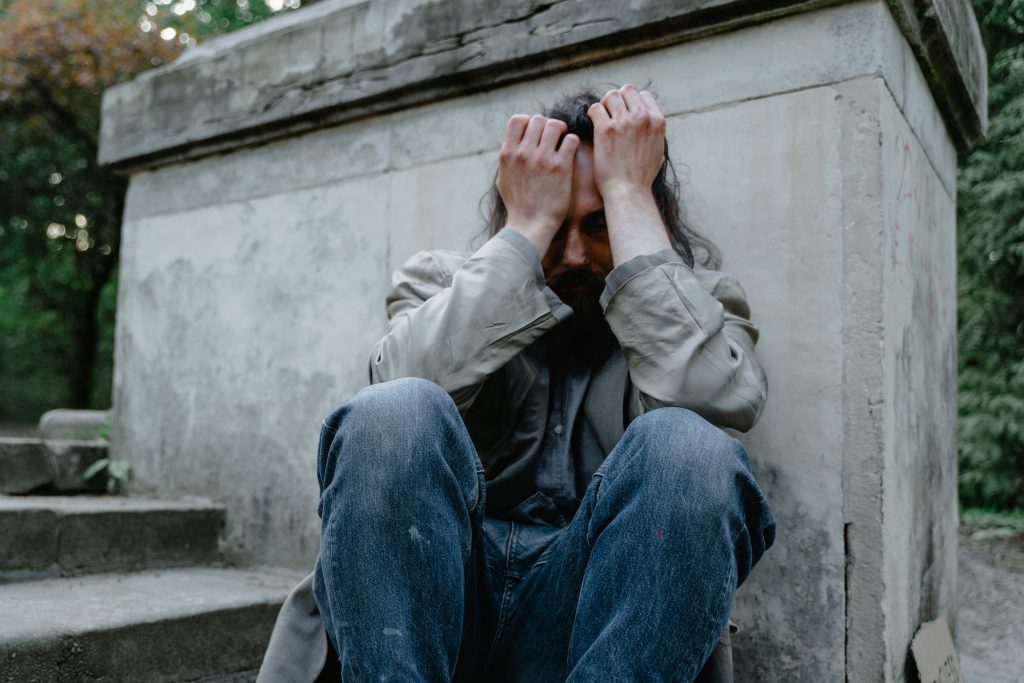Endings.
Perhaps nothing in life is more painful than endings.
Grief comes in many shapes and colours: Losing what we love, having to let go of our dreams about the future, watching a loved one die, the ending of a relationship or a friendship, grieving the loss of youth and vitality – these are no doubt profoundly painful experiences for all of us.
According to late researcher and author Elizabeth Kubler-Ross, grief is a process that unfolds in stages. These stages don’t necessarily follow a neat order. But for the sake of simplicity, let’s look at them in order.

Denial
This is when we don’t want to even think about what’s actually happening. We would rather be elsewhere, instead of feeling the pain of our loss. We are resisting reality. At this stage, we might feel immune to feeling yet in truth, we are simply overwhelmed by the immensity of the experience we are going through and our system is in a state of shock.
A child going through this stage of grief might feel convinced that her dead parent is actually sleeping or that they have gone to vacation and will be back after sometime. An adult going through this stage might be very convinced that his marriage is going through a rough patch instead of recognizing that perhaps his connection with his partner is by now so damaged and undernourished that it is likely that the relationship has been over for some time.
Anger
At this stage, we are seeing the reality of the situation and what we are seeing and feeling (the immensity of our loss) is pissing us off. We are not numb or in denial here, we are simply mad.
The same child might yell at anyone who’s trying to tell her about what’s happening. She might call them liars for telling her that the parent is gone and not coming back. She might angrily go to her room and shut the door.
As adults, we become mad at the world because we had to sell our house. We are mad at our partner because they didn’t try harder, etc. Anger and more anger until things cool down more.
Bargaining
Once we see that neither denial nor blind anger worked to change the situation, we begin to use our very last resort: We try to cut a deal with Life.
Our child here might ask others around her: “Please tell God that I’m going to be a very nice girl, I just want my mom back.”
We might try to convince an otherwise uninterested now ex-partner that we can do better.

Depression
By now we have denied the reality, got mad at it, tried to bargain our way out of it and now, finally, we are feeling our pain. The loss is real and it hurts! Here we are feeling the hurt now instead of trying to run away from it.
There is a real opportunity here. If we go through our grief and pain, we will emerge from it stronger and more sensitive, kinder. If we decide not to proceed, we run the risk of staying depressed, numbed. This is the stage during which we need some real, high quality support. To stay here is dangerous. We must work through the pain and connect with Life once again.
During this stage, we might spend days and days in bed. The world seems gloomy and nothing has any taste or joy. Paint it black.
Acceptance
If we do the hard work and actually go through the pain of loss and grief, we discover a great treasure lying ahead. Yes we are in pain, yes the loss might feel enormous, but there is also something else here within our broken heart: Gratitude and joy.

Let’s finish with two quotes by Elizabeth Kubler-Ross to celebrate the wild and raw beauty and depth of loss and grief.
“The most beautiful people we have known are those who have known defeat, known suffering, known struggle, known loss, and have found their way out of the depths. These persons have an appreciation, a sensitivity, and an understanding of life that fills them with compassion, gentleness, and a deep loving concern. Beautiful people do not just happen.”
“The reality is that you will grieve forever. You will not ‘get over’ the loss of a loved one; you will learn to live with it. You will heal and you will rebuild yourself around the loss you have suffered. You will be whole again but you will never be the same. Nor should you be the same nor would you want to.”
Let’s become truly and deeply beautiful people by embracing endings fully. The quality of our lives depends on it.



